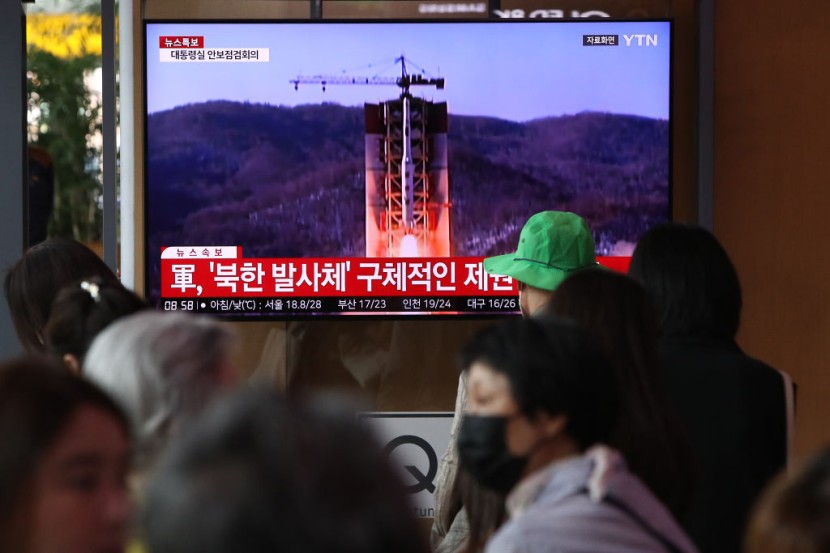
- North Korea's satellite launch failed after the rocket suffered failure and crashed into the sea
- The space vehicle reportedly suffered instability in the engine and the fuel system
- The mission is North Korea's sixth satellite launch and its first since 2016
North Korea's planned satellite launch failed after the rocket experienced a malfunction and crashed into the sea as South Korea's military announced that it could recover parts of the space vehicle.
State news agency KCNA was the one that reported the failure of the satellite launch and said that the "Chollima-1" rocket failed due to instability in the engine and the fuel system. The mission was the sixth satellite attempt by North Korea and its first since 2016.
North Korea's Satellite Launch Ends in Failure
The launch was designed to place North Korea's first spy satellite into orbit, prompting concern among international powers. Parts of South Korea and Japan issued emergency alerts and brief evacuation warnings. As per Yahoo News, these notices were later withdrawn, with no danger or damage reported.
On Wednesday, South Korea's Joint Chiefs of Staff said that the country's military was already conducting a salvage operation to recover what officials believe to be parts of North Korea's space vehicle. Military authorities also shared photographs of debris they pulled from the water near the crash site.
Officials from various countries, namely Japan, South Korea, and the United States, held a phone call following the incident. They "strongly condemned" North Korea's launch during the call, said Japan's foreign ministry.
The statement noted that the three countries involved in the call will continue to remain vigilant with a high sense of urgency following the incident. On the other hand, North Korean authorities said it plans to launch its first military reconnaissance satellite between May 31 and June 11 to strengthen its monitoring of US military activities.
Last week, South Korean officials placed satellites into orbit with a domestically designed and produced rocket for the first time. Furthermore, according to Reuters, China sent three astronauts to its space station on Tuesday as part of a crew rotation.
First Reconnaissance Satellite
KCNA noted that North Korea's satellite crashed into the sea after it lost thrust due to the abnormal starting of the second-stage engine. The report was an unusual admission of a technical malfunction that the country faced.
The state news agency noted that Pyongyang's National Aerospace Development Administration (NADA) will conduct an investigation into the "serious defects" and will take action to address them in time for a second launch as soon as possible.
North Korean officials also provided data to international authorities where they said that Pyongyang plans to carry the rocket south, with stages and other debris expected to fall over the Yellow Sea and into the Pacific Ocean.
On Monday, Japan's Defense Ministry issued a warning that it would move to destroy any North Korean missile that enters its territory. This came several weeks after North Korean leader Kim Jong Un ordered his officials to prepare to launch the North's first military reconnaissance satellite, said CNN.








